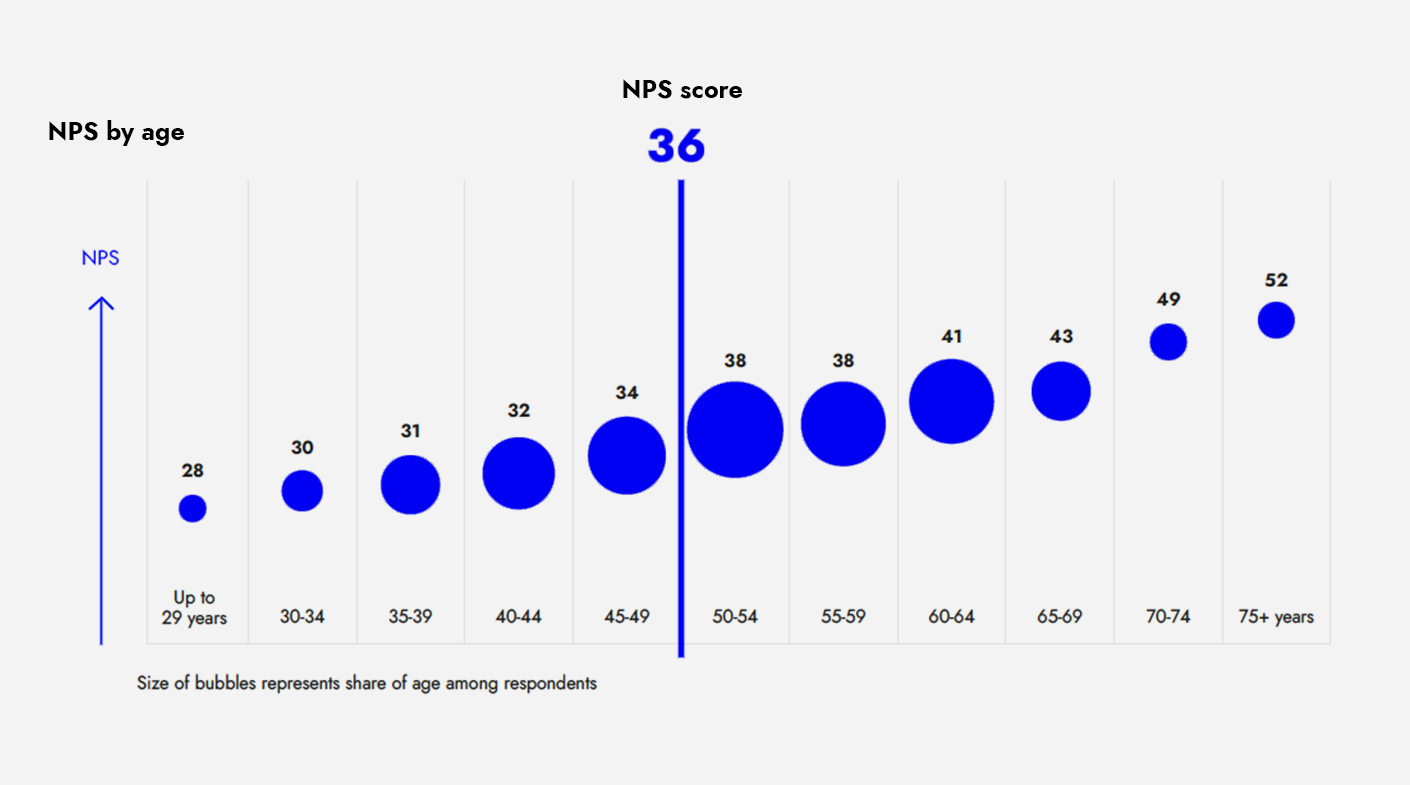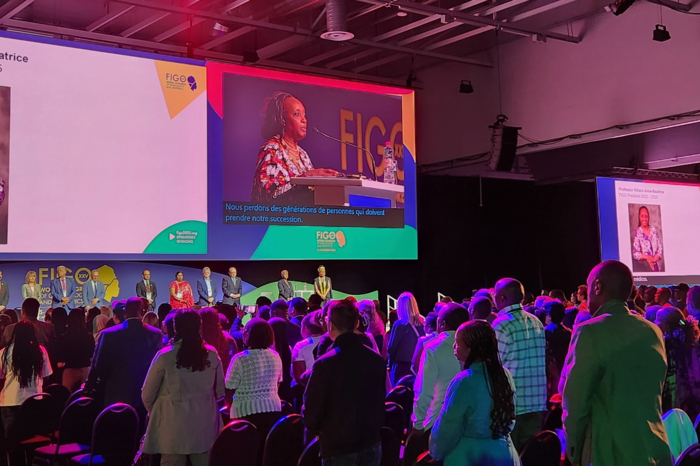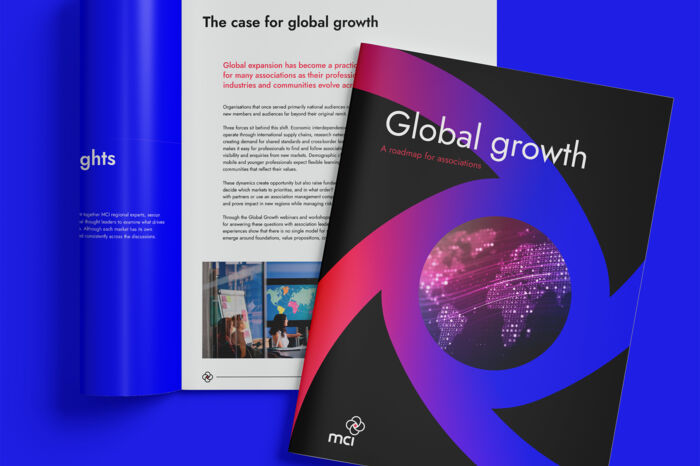
The 2022 AEI report continues: “Associations must consciously seek to better understand what drives and motivates [young professionals] to secure their involvement, active engagement, and brand loyalty."
Fostering innovation and ease of access to products, programmes and content (and the relevance of that content) are amongst the key drivers for this generation.
Gen Z consumer behaviour and how to communicate with younger generations of professionals
Gen Z has characteristics, needs and expectations that are completely different from previous generations. How can associations and professional societies – which suffer from an ageing image – attract, engage and retain these young professionals in the long term? This article offers a three-step approach.
Step 1: Attract
Gen Z has more knowledge about the digital world than previous generations. These young professionals know how to create, design and shape using digital tools and are accustomed to accessing information quickly and easily. Take these consumption habits and preferences into account, and adapt your offering and communication accordingly. An example? Offer them a fast and intuitive website, with omnichannel communication (social networks, newsletters, podcasts, forums, chats, etc.), and interactive and varied content (videos, webinars, quizzes, etc.).
Gen Z tend to be more responsible consumers and more engaged citizens who want to embrace a cause that will have a significant impact. They are sensitive to organisations that embody strong values, particularly in terms of the environment, inclusion and social justice. It is therefore advisable to highlight the association's ethics and efforts in terms of sustainable development, diversity and social responsibility in your communication.
Because Gen Z wants to be recognised for their contribution and have a say in the decisions that concern them, share a clear and inspiring vision of your association’s missions and objectives, and do so via transparent communication that includes the voices of Gen Z members.
Gen Z professionals have a dual need for stability and agility. They want to benefit from financial and professional security while having the option of changing career paths or training in new skills (they have been labelled “zappers” due to their propensity for “quick shifts” or sudden changes of direction). Offering personalised professional development opportunities (certification, training, mentoring programmes, etc.) throughout their career will be appreciated by them.
For example, The American Society for Nondestructive Testing (ASNT) has a leadership development programme called Rise. Executive Director Neal Couture says this is the Society’s investment in the next generation to create leaders: people who will be leading the society in future years, but also leading their profession. “Having those kinds of programmes... is an important way to demonstrate to that part of the population that this is a welcoming place... Being aware that they have different interests and needs and giving them choices within your society is absolutely critical.”
Watch Neal discussing the principles of engaging Gen Z professionals below.
Step 2: Engage
To effectively and sustainably engage Gen Z, it is important to offer them a personalised experience that meets their expectations. To do this, take into account that these young professionals are volatile consumers who will not hesitate to “zap” if they are not satisfied.
They are looking for personalised content that they can consume quickly before moving on to new content. Facilitate ease of access to the information and content they require, without imposing a lengthy or costly membership package. For instance, a commitment "trigger" could involve providing them with temporary access to an online platform, allowing them the chance to 'try out' before making a commitment.
Members of Gen Z are consumers influenced in their decision to belong to a community by the recommendations of their peers, personalities or key opinion leaders they admire. They rely more on the opinions of others than on institutional discourse so it’s a good idea to capitalise on the recommendations of influencers in the sector, as well as on the testimonials of members invested in the association.
The Gen Z consumer is demanding and expects real added value from the organisations with which they decide to engage. They want personalised service that meets their specific needs and brings immediate satisfaction. It is therefore appropriate to offer them relevant content adapted to their level of knowledge, their focus of interest and their professional objectives.
Step 3: Build loyalty
To retain Gen Z, offer them an enriching experience that will reinforce their feeling of belonging to a community that suits them and which they have chosen. Accept the idea that Gen Z individuals are more consumers than members.
They are reluctant to make a long-term commitment and their aspirations are not to become members but rather to benefit from the advantages that the association or professional society can offer them through content sharing, networking or even the organisation of events.
These young professionals are also savvy and creative people who like to actively participate, so engage them through collaboration, co-creation and knowledge-sharing opportunities. Include them, for example, in the process of developing and creating content by considering their opinions and suggestions, and provide them with the tools and resources necessary to contribute.
Another idiosyncrasy of this generation is that they want to feel connected to other members who share their interests and values. They want to benefit from a professional network that can help them in their career, for example, through facilitated interactions between more senior and younger members. This can be achieved by promoting interactions and exchanges between members through friendly and fun events, where success stories of members who are more advanced in their careers are shared.
As Peter J. O’Neil, CEO of ASIS International, says, “I think that the notion of making all feel welcome and included is important – making sure that governance structures reflect what the next generation looks like and is, and their wants, needs, desires and preferences. Without incorporating those viewpoints, you cannot have a diverse and inclusive organisation that really is driving member value and engagement.”
Watch Peter talking about diversity, inclusivity and member engagement below.
This new generation of members is forcing associations and professional societies to rethink networking, reorganise their membership benefits and to redefine objectives so that they are more relevant to all members, and especially the younger generation. This is a major upheaval for associations but an essential development if they wish to ensure their sustainability.
Have you noticed a drop in the engagement of your “young” members? Do you want to boost the commitment of young professionals to your association? To find out more about our solutions, contact one of our experts.
* The Association Engagement Index (AEI) is a global benchmark study that measures the performance, relationship strength, and outcome of engagement tactics as seen through the eyes of associations’ members and customers. 51 associations across multiple industries and professions participated in the 2022 edition of AEI, generating more than 12,700 responses from members and customers around the world.
To sign up for the 2024 Association Engagement Index please visit: www.mci-associationengagement.com. Participation is free.




